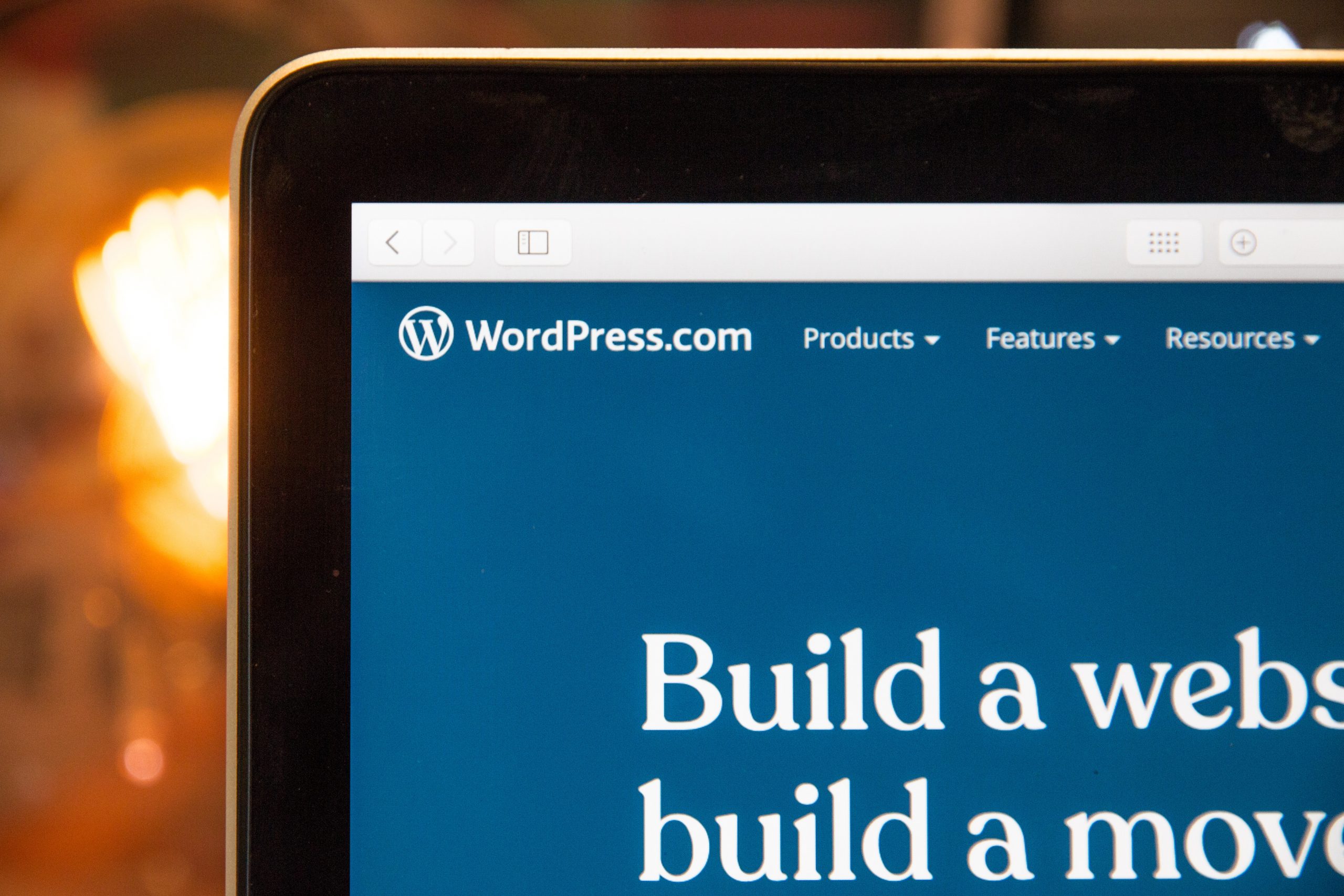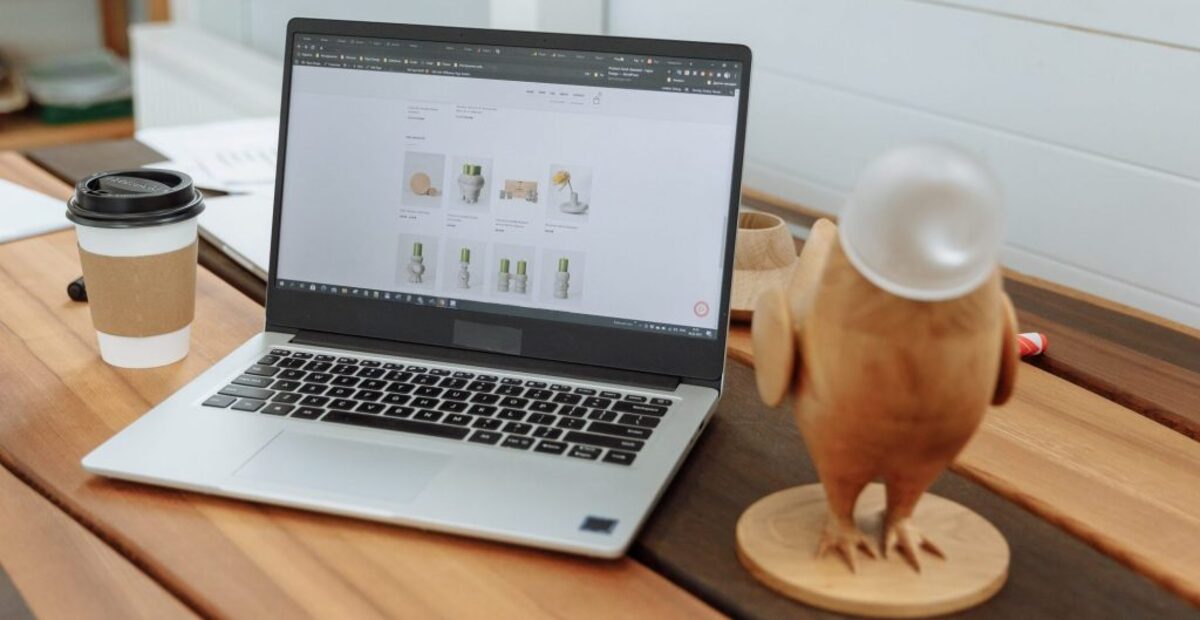If your site runs on WordPress, one of the things you need to worry about is the design. This brings us to the problem of choosing the right theme and MonsterTemplate offers a variety of themes.
It used to be difficult to set up a WordPress site. But recent updates have made it an easy task. If you still have issues at this point, you may want to check out this WordPress installation step-by-step guide.
WordPress too is easy to use. Once you’ve decided to work with it, you become part of a growing community as WordPress powers over 30% of sites on the Internet. Susan Valez has an excellent guide for WordPress beginners you may want to read.
There are a couple of factors to consider when choosing a theme. I don’t know about you but I have gone out to find out from some popular bloggers what attracts them in WordPress themes.
Let’s read their answers as that may be of huge help to us.
What are the things that attract you in a WordPress theme?
A. Ben Sibley (Founder of Compete Themes)
My first concern when evaluating a theme is minimalism. I like themes that put all of the emphasis on the content without extra decorations and distractions. If a theme has too many elements, I’m not even sure what to do with them!
Next up is responsive design. These days, websites have to look great on mobile devices and desktop computers. WordPress themes that adapt effectively to smaller screens and have beautiful navigation designs always stand out.
While there are plenty of plugins that can speed up your site, your theme helps to set a baseline for your site speed. A well-crafted WordPress theme should have a minimal impact on your website’s load time. It should only load 2-5 files in total and if the demo site gets a great score on tools.pingdom.com then I know it will work well on my site.
It’s crazy how customizable some of the multipurpose themes are these days. I’m not usually interested in those themes because they’re so complex, so I prefer to find a theme that looks close to what I want already and also includes a diverse set of customization features. Robust but simple customization tools make a theme easy to work with and personalize.
Lastly, as a developer, I want to use a theme that is coded professionally. Great documentation and child theme compatibility is a must-have for me.
A. Janice Wald (Janice Wald, Blogger at Mostly Blogging)

There are many reasons to pick a WordPress theme. Since WordPress is the most popular blogging platform, there is tremendous support for all aspects of WordPress including the themes.
For example, Facebook groups exist just to support bloggers who have a certain theme. I have the Genesis theme and a Facebook group exists to support me when I run into trouble.
Forums exist for all matters concerning WordPress you could go to for help. If you run into trouble and need one-on-one help, you could outsource your tech needs. WordPress themes are so popular, that the odds are strong that the person you outsource to will be familiar with them.
Also, WordPress themes are attractive. They’re so aesthetically pleasing, I had trouble choosing! Next, there is such a variety of WordPress themes that whatever your niche, you’ll be able to find a theme that suits you.
You don’t have to be “techy” to use a WordPress theme. I know very little coding, and I get on just fine! When you have a WordPress theme, no coding is required. As you can see, using a WordPress theme has many advantages.
A. Donna Duncan (SEO / Content Marketing Consultant)
I optimize websites for a living so I look for themes that will enhance, or at the very least, not impede my ability to do so. I look for themes that are:
- Robust, Secure, Fast, and Responsive: The first, and most important, set of criteria I look at has to do with the theme architecture. The theme must be standards-compliant, cross-browser compatible, lightning-fast, responsive (mobile-friendly), and have no hidden links. These things can’t all be thoroughly vetted until you install the theme on your chosen hosting environment, but you can get a general idea by reviewing the theme’s demo site.
- Feature / Functionality Rich and Adaptable: Rich to me means the theme that supports the website owner’s business requirements and nothing more. Adaptable means that new features and functionality can be added on, plugged in, or integrated seamlessly as the business owner’s needs continue to evolve over time and without jeopardizing your ability to upgrade. “Without jeopardizing your ability to upgrade” usually translates into being able to create parent and child versions of the theme. Child themes inherit the look and feel of the parent themes while allowing for customization and future upgrades. This gives the flexibility you need while maintaining your site’s hard-earned speed, security, stability, and responsiveness.
- Ease of Use: Ease of use is critically important to achieving speed-to-market regardless of who maintains the website. I look for easy ways to change color schemes, add tables, integrate a blog, or add commenting and sharing systems.
- Support: Nothing’s more frustrating than not being able to get help when you need it. I look for a theme with an active support community; one that is accessible 24/7 365 days of the year with lots of contributors and updates.
- Ratings and Reviews: Lastly, all else being equal, rave customer ratings and reviews will give one theme an edge over another because it signals trust and acceptance.
A. David James (Digital marketing specialist)

Hello. Here are the things that attract me in a WordPress Theme.
- The theme is light – We want the theme to be light in its file size so the web pages on the site can load quickly.
- The theme is secure – This is important to minimize the risk from malicious activity such as hackers. We check that the theme is regularly updated by the original developers.
- The theme has a nice design – This is a bonus, as it will minimize the amount of development work required to get the website live.
- The theme is customizable – It’s handy if the theme has customizable elements that can be managed within the CMS.
- The theme is mobile responsive – More than half of the content that is consumed on the web is done on a mobile device. So we want to make sure that the website’s theme can present the content in the appropriate format based on the device of the user.
FYI – We usually use themes that are developed on the Genesis Framework (StudioPress). This is because we know the themes are regularly updated, light, and well designed. I hope that this helps.
A. RonSeg (CEO & Founder of Web SEO Marketers)
I have had my current WordPress theme for about 2 years now and the reason why I’ve been sticking to it is that it’s optimized for SEO and Mobile Responsive, besides that it also looks very nice.
I’m currently planning to change my WordPress theme. Here are the five things that attract me the most when looking at a new theme:
- Mobile Responsiveness. This is maybe one of the most important things to look at when choosing the right theme for a blog or website, nowadays people spend 3-4 hours a day on their mobile devices, therefore is really important to make sure your site looks good on mobile and it also performs well in terms of loading speed.
- SEO Friendly. I don’t even have to say a lot about this. I care about SEO because I care about traffic, the theme must be well optimized for SEO.
- Loading Speed. I’m looking for a theme that looks very nice but at the same time is not loaded with too much code that makes it too heavy.
- The theme must be Customizable. I like to customize my themes in my own style, but I don’t like to go through a lot of coding in order to do that. That’s why like themes that are relatively easy to customize.
- Updates & Support. This is something that’s also very important for me since I usually don’t change my theme very frequently, I like to have a theme that’s constantly releasing updates, as WordPress itself releases its own updates, and finally having a team of professionals who can help you out in case something goes wrong.
Those are definitely my top five priorities in terms of choosing a WordPress theme.
A. David Leonhardt (President, THGM Writers)
The first thing I look for in a theme is that it has most of the elements I want in the place I want them. Visually, colors are easy to change. Images can easily be replaced. Fonts can be redesignated. But the placement of items is more complex, requiring CSS work (which is beyond my ability), and the risk that something will go wrong.
There are a few key functions that are critical in choosing a WordPress theme. Responsiveness is an absolute must. If the theme is not fully responsive, I won’t touch it. HTML5 valid code is also a make-or-break aspect.
I think I would compare modification options. Some themes come with plenty of options to tweak the theme with various features without hiring a coder. That can make it faster and cheaper to get from buying the theme to launching the website.
Obviously, free is better than paid…but I wouldn’t let $50 or $70 tip the scales for an inferior theme. The only major feature I don’t care about is shopping cart integration, as I just don’t do eCommerce. But if you are in that field, that should be as important as responsiveness.
A. christopherjanb (Content Marketer)
![]()
On most of the WordPress blogs I have created, I use the Genesis Framework and Beaver Builder. The former is the theme I use as the foundation of my blog’s layout. The latter is a drag and drop builder plugin to help me design landing pages.
As a theme, I feel that the Genesis Framework is the ideal theme for a number of reasons:
- Affordable – for $59, you can use the theme on as many sites as you want. Even if you’re only managing a single site, the theme is cheap enough given its other features and benefits.
- Easy to use – Installing the plugin and its child theme is a breeze.
- Fast – It is arguably the fastest loading theme on WordPress. The theme is SEO-friendly and is not bloated with unnecessary features unlike other themes
- A wide variety of add-ons – If you visit StudioPress (the site that developed the Genesis Framework), you can choose from different themes built on the framework so you can create a beautiful site out of the box
- Works with most plugins – One of the selling points of WordPress are the choices of plugins. If the theme is incompatible with the plugins you’re currently using and you’re not a developer, then you’ll be having lots of problems making your site work. Thankfully, Genesis works well with all of the plugins I’ve tried so far.
A. Justin March (Freelance Bristol SEO Expert and Chief Buddy at Username Buddy)
An overriding concern for me is that the theme should help accomplish the goal. This attitude will save you a ton of time focusing only on relevant theme designs. For example, if you’re focused on subscriptions, avoid themes without a prominent email opt-in.
- It’s [Insert Your Goal] Focused: You need a theme that matches your goals, and answers the “What’s in it for me?” questions of your user. You need to lead your users to a point where they take the desired action. I find books like “Don’t Make Me Think” by Steve Krug an invaluable source of inspiration.
- It’s Got a Simple Attractive Design: The design is often underrated but underpins every important aspect that affects theme choice. Simple sites work best as they’re easier to understand at a glance, and contain less coding and imagery. Your color choices and font styles can provoke great reactions and improve readability.
- It’s a Premium Theme: In the long run, it’s often cheaper to opt for a premium theme, these are typically mobile responsive, fast to download, and well supported. My current preference is to choose a theme from the Genesis Framework. Its supported by a range of plugins, plus some decent premium design-related plugins to tweak your design.
- It’s Got Great Reviews and Ratings: Check out the reviews and ratings for the themes in the frame. A great way to ensure your get what you need and don’t run into nasty surprises. As with most things, it’s important who you listen to. make sure the reviews are honest and from reliable sources.
- It Passes Key Tests: If you’ve followed the above advice your theme should be perfect, but don’t be complacent. Even if theme X claims to be faster than theme Y, I suggest you test this in the real world. I recently ran into a rather deceptive speed test. I ended up switching themes to the supposedly slower provider. Here’s what you can test and where you can test it:
- Site Speed
I recommend testing at Pingdom [https://tools.pingdom.com/] and GT Metrix. [https://gtmetrix.com/] Use the results to understand and try to fix any issues you find. - WordPress Standards
Test out how efficient a theme is by installing Theme Check [https://wordpress.org/plugins/theme-check/] - Mobile-Friendly Test
Check out Google’s Mobile-Friendly Test [https://search.google.com/test/mobile-friendly]
A. Adam Connell (Founder of Blogging Wizard)
Finding the perfect WordPress theme is challenging. And if anything, it’s even harder because of how many themes are on the market.
Here are some of the things that I look for in a theme:
- A great design: A great design means something different to everyone. I prefer minimal themes with plenty of white space and a strong focus on typography and user experience.
- Regular updates: Over time, the WordPress core changes, and that requires themes to be updated occasionally. It’s best to avoid being in a position where you have to switch themes because the existing theme hasn’t been maintained.
- It’s lightweight: Sure, it’s nice to have loads of features but it’s more important that themes load fast. This is good for us, it’s good for our visitors, and it’s also good for Google. Slow websites will cost you customers, and that’s a fact.
- It has basic customization options: While I tend to go for more lightweight themes, it’s always nice to have some customization options. When I choose a theme, the most important thing is how it looks, and if it will serve the purpose I need it for – because of that, I find that I don’t need too much in the way of customization options. And if necessary, I can tweak a bit of code to get the colors right.
- Responsive support: While some free themes provide great support, for the most part, paid themes are the way to go for support. And it’s easy to understand why: offering support isn’t cheap. It costs money.
Ultimately, when I search for a theme to use, I’ll judge each on a case-by-case basis. But these are some of the main things I look for.
A. Kari (Blogger And Freelance Writer)
- Fast loading: The theme has to load fast. That’s without a doubt my biggest concern when it comes to a theme. I want it to be lightweight.
- Responsive: This isn’t really a concern anymore as most themes are responsive, but it’s definitely something I check before I upload a new theme. It needs to look good on all phones and tablets, as well as on a big screen.
- Social media sections: I want to be able to display social media profiles easily. For instance, I want a section built-in where I can easily display my latest posts from Instagram or Pinterest.
- Ad optimized: I want a theme that is already optimized for ads and lets me just plug in the ads and go. Many themes don’t have a header ad space or a space above the title, so that’s something I look for.
- Quick and professional support: Lastly, I want to know that I will get support if I need it. Most issues I can solve by myself, but there are times you need to talk to the theme developer about theME issues that you just can’t solve.

